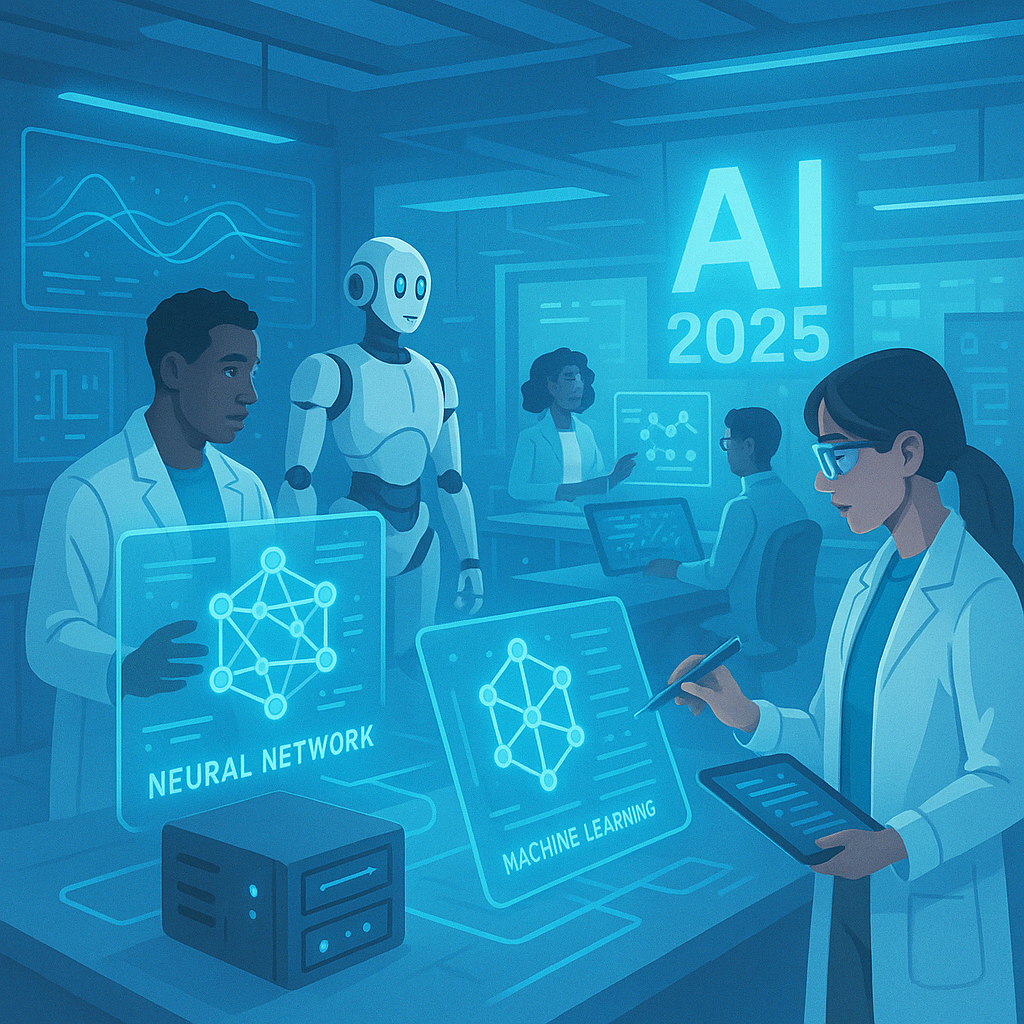Artificial Intelligence (AI) has an influence on everything from smart assistants to self-driving cars making it one of the fastest-growing fields today. Behind this progress are AI researchers—people working hard to build and improve these smart systems. Want to know what they do and how their work might look in 2025? Let’s break it down in simple terms.
🧑💻 Who Are AI Researchers?
AI researchers study and create smart technologies that help machines learn and solve problems. They often work:
- To make chatbots understand language (like ChatGPT)
- To teach robots to see and react
- To build systems that make predictions from data
- To ensure AI behaves and
In a nutshell, they solve problems with data, code, and new ideas to advance technology.
🔧 Tools and Tech AI Researchers Use Every Day
To create smart systems, AI researchers need strong tools. Here’s what they often use:
- Python: The main programming language for AI.
- Libraries such as TensorFlow and PyTorch to build models.
- Cloud Platforms like Google Cloud and AWS to run big experiments.
- MLOps Tools to monitor, check, and launch AI models without hassle.
- Fast Hardware like GPUs and special AI chips to handle massive calculations.
In 2025 many teams also look into quantum computing and use shared platforms to work across different time zones.
🗓 A Day in the Life of an AI Researcher
Each day brings something new, but most AI researchers stick to a loose yet focused schedule. Here’s what it might look like:
Morning
- Check out fresh research papers or news
- Join team huddles or idea-sharing sessions
- Set up experiments or write some code
Afternoon
- Run models and look at the results
- Tweak algorithms or clean data
- Team up with other researchers or engineers
Evening
- Put together research reports or blog posts
- Help out with open-source AI tools
- Look over papers or get ready for conferences
A lot of them work from home or split their time between office and home making it a job that lets you balance work and life while being creative.
🔥 Hot Research Topics in 2025
AI keeps growing, and scientists are exploring exciting fields such as:
1. Generative AI
AI that produces text, images, or music—like apps that compose blogs or create pictures.
2. Ethical AI
Ensuring AI gives everyone a fair shake, avoids prejudice, and clarifies its decisions.
3. Multimodal AI
Programs that grasp various input types—such as reading text viewing images, and hearing speech.
4. Healthcare AI
Supporting doctors to spot illnesses sooner, suggest treatments, or find new drugs.
5. Energy-Efficient AI
Creating smarter systems that reduce power consumption and don’t need massive servers.
🌍 Teaming Up Globally
AI research in 2025 connects people more than ever before. Scientists:
- Team up with groups in other countries
- Take part in open-source projects on sites like GitHub
- Share results in worldwide journals or online groups
- Work together with experts in fields such as medicine, law, and design
This teamwork helps make AI more useful and responsible for everyone.
💰 Job Prospects and Earning Potential
AI research isn’t just thrilling—it’s well-paid too. Pay varies, but here’s a rough guide:
- Entry-Level: ₹80L–₹1.2Cr per year ($100K–$140K)
- Mid-Level: ₹1.5Cr+ ($150K+)
- Top-Level at Big Tech: ₹2.5Cr+ ($300K+), with bonuses and equity
Researchers often get chances to publish work, file patents, and speak at international events, in addition to their pay.
😅 Common Challenges in AI Research
The tech field has its tough parts too:
- Finding Quality Data: AI has a need for loads of clean trustworthy data.
- Keeping Up: New techniques and tools come out almost every month.
- Ethical Concerns: Making sure AI systems don’t hurt or fool users.
- Computing Costs: Running big models can be pricey.
Even so many researchers like the challenge and feel good about fixing real-world issues.
